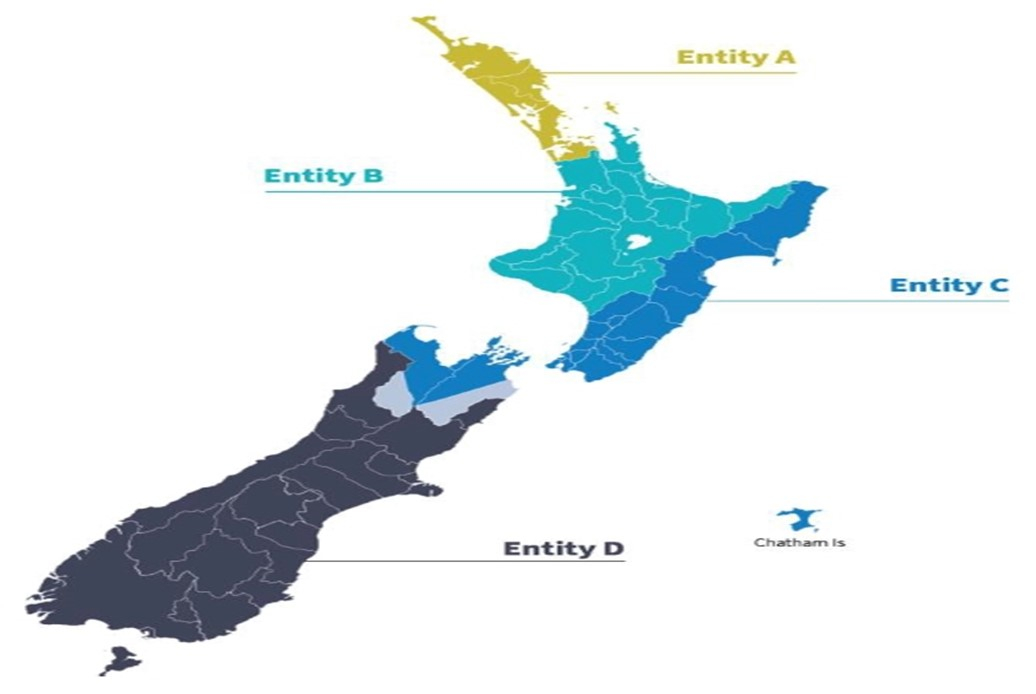Three Waters Reform. What happens now?
Topics covered in this article: RMA, RMA & Local Government
Special Counsel
Phone: +64 7 927 0522
Email: rzame@clmlaw.co.nz
Bachelor of Laws, Bachelor of Science, University of Otago
The Government’s Three Waters Reform (drinking water, wastewater and stormwater) took another leap forward this week, with the passing of the Water Services Entities Act.
Two further bills were also introduced to the house this week and are open for submissions until 12 February 2023.
Water Services Entities Act now law – but what does the ‘establishment period’ mean?
The Water Services Entities Act received Royal assent on 14 December 2022. It establishes the four water service entities (WSEs) and sets out provisions relating to representation, governance and accountability arrangements, as well as some powers for the transition period, referred to in the Act as the “establishment period”. The establishment period will run until 1 July 2024, after which time the WSEs are expected to be fully operational.
The four WSE boundaries are shown below:
Schedule 1 to the Act contains a number of transitional provisions relating to the establishment and governance of the WSEs. This includes specific establishment objectives and functions during the establishment period. It also requires the appointment of an establishment chief executive to each of the WSE during the establishment period, who are required to prepare allocation schedules for the entity, specifying assets, liabilities and other related matters.
Duties have been imposed on local government organisations to co-operate with the Department of Internal Affairs (DIA)¹ and WSEs during the establishment period, to facilitate the water services reform. This includes matters such as complying with reasonable requests for information or for secondment of employees to the WSE or DIA. There is also a specific requirement on the chief executive of a Council to ensure that certain decisions are confirmed by the DIA in writing. This relates specifically to matters where the decision may, directly or because of its consequences, significantly prejudice water services reform; significantly constrain the powers or capacity of the WSE following reform; or have a significant negative impact on the assets, liabilities or other matters that are transferred to the WSE as a result of reform.
The Minister can also issue a Government policy statement on water services during the establishment period to state the Government’s overall direction and priorities for water services during the establishment period and inform and guide the activities involved in establishing the WSE and preparing them for operation. WSE are required to give effect to the statement when performing functions during the establishment period. The chief executive of the DIA is also required to prepare an approve an establishment water services plan for a WSE. The plan must include processes, policies and guidance for identifying the functions, staff, assets and liabilities to be transferred to the WSE and the proposed timing for transfer; processes and timing for initial asset management plans and initial funding and pricing plans; performance expectations and reporting requirements. Accountability arrangements are also provided for.
Several provisions address employment positions that may be altered during the establishment period. For employees of a local government organisation that provide water services, a review of their position will be undertaken by the chief executive of the DIA. Following this, employees whose roles primarily relates to or primarily supports delivery of water services will transfer their work to the WSEs, subject to other relevant factors, such as commute etc.
Water Services Legislation Bill introduced
The new Water Services Legislation Bill was introduced recently, being the second bill in a suite of legislation to reform water services delivery in New Zealand. Bill 2 would amend the Water Services Entities Act to form a single act. The Bill proposes the arrangements required for the WSEs to have the necessary tools to become fully operational by the establishment date of 1 July 2024. A focus of the Bill is on the WSEs functions, powers, obligations and oversight arrangements.
However, it also provides regulatory functions and powers, to enable WSE to undertake works, make rules, plans, and other instruments relating to WSE, and engage in compliance and enforcement activities. A number of amendments are proposed to various pieces of legislation which currently apply to councils in order to enable that to happen. This includes proposed amendments to the Local Government Act, Resource Management Act (RMA) which is also currently under reform, and the Local Government Rating Act (among a variety of other amendments). In some cases, the provisions have been simply ‘pulled across’ but a variety have been amended. The provisions currently provide for:
- designating controlled drinking water catchment areas and governing these areas through controlled drinking water catchment management plans. The proposal is that WSE will become ‘requiring authorities’ under the RMA;
- making stormwater management plans to guide the management and future planning of stormwater systems under their control;
- making stormwater network rules to control discharges into stormwater networks in urban areas. The rules may apply to other stormwater networks by agreement with the network operator;
- entering into service agreements that will set out the rights and obligations of water services entities and billpayers;
- setting enforceable restrictions on drinking water use for water conservation and creating consumer behaviour rules to protect supplies and networks;
- restricting agricultural water supplied by a local authority in certain circumstances;
- providing for a trade waste plan, permit, and certification regime;
- setting network connection requirements to ensure that connections to networks meet engineering design standards; and
- making network protection rules such as notification requirements for works being carried out near their networks.
Schedule 1 of the Bill will come into force immediately (i.e. on the day after Royal Assent), which will update the Water Services Entities Act’s provisions relating to allocation schedules and sets out functions and powers of the new entities. This includes specific provisions requiring allocation schedules to be approved by the Minister and general provisions for transfer of assets, liabilities and other matters to WSE on the establishment date.
The Bill also proposes to establish relationships between entities and consumers to enable transparent communication as a way forward for efficient delivery of water services.
Water Services Economic Efficiency and Consumer Protection Bill introduced
The third Bill, also introduced recently, aims to provide the economic regulation and consumer protection framework for water services. Due to the nature of the WSEs, there is a risk that the entities will act inefficiently without sufficient independent scrutiny. The Government considers that specific economic regulation and consumer protection regimes are necessary.
The Commerce Commission would be the regulator for the three waters sector. A newly established Water Services Commissioner would ensure transparency of water entities’ operations, as provided for in the Bill. A key feature of the Bill is the requirement for information disclosure, quality, and price-quality regulation, which would be implemented in phases over a period of time. However, initial input methods would need to be determined by the Commission by 1 July 2026.
Next steps
Submissions on the second and third bills are open until 12 February 2023. If you have any questions in relation to the Three Waters Reforms, or if you require assistance drafting a submission, please contact a member of our Resource Management and Local Government team.
¹The Department of Internal Affairs (DIA) is the department with oversight powers during the establishment period. A National Transition Unit has been established within DIA to implement the Three Waters Reform through a co-ordinated nationwide approach
16 December 2022
Written by: Rachael Zame, Senior Associate and Esther Barry, Law Clerk






